As one of the other recent films who have attempted to somewhat modernize Shakespeare for the stage, Loncraine’s Richard III in 1995 actually seems to be a much more respectful modernization of Shakespeare than many consider Luhrmann’s 1996 Romeo + Juliet. From my experience as a person who was very critical of Luhrmann’s adaptation, I could tell as the movie opened that this would be a much more mature adaptation aimed at an older audience. It called forth images of past war drama’s and action movies based on World War 2, and I began to settle in with some optimism.
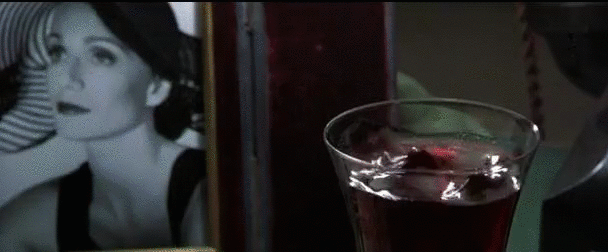
Well, as over the top and dramatic as you could get I suppose, and worries began to pry at the back of my head as I recalled a mess I was forced to watch in highschool, which I’ll admit I enjoyed as a comedy and not the tragedy it was. A character promptly executes who we assume is an important person who’s said only a few words up to this point, though to be fair any words of his were added in by Loncraine’s decision, before promptly killing another. Personally, I’m a fan of violence, since I find the conflict of violence and non-violence interesting so this wasn’t exactly unwelcome as we are introduced to the main… well, antagonist I suppose is the word for this film.
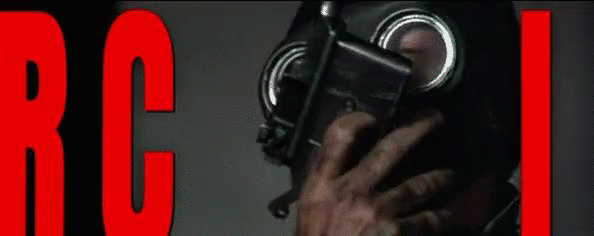
As many of us saw in class, Ian McKellen is an experienced actor who has a lot of experience with Shakespeare, and personally seeing him as the star role gave me a lot of hope. Not because I have an affinity for older men, but that this would not turn out like the later Romeo + Juliet (I promise this is the last time I’ll beat the dead horse). The violence was done, and so ended what I’d call the prologue to this Shakespeare movie. The directors role here was to give the audience some background on the story, since we’ve kindly been informed multiple times in class that Richard III is a historical play with a chronological sequence. In addition to this whole scene at the beginning which sets up a scene contextually later on, the director has bold red text multiple times explaining the background and context for what we’re about to see.
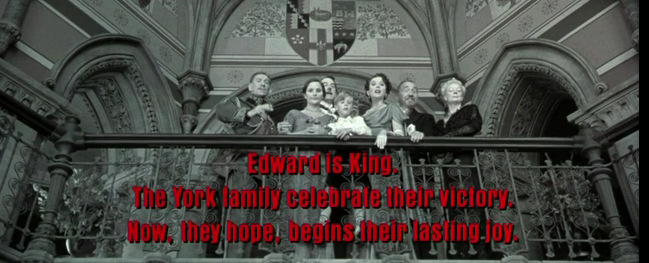
As we’ve seen, this is an adaptation that film has made when transferring Shakespeare to film. How successful is it? Well I’d say there’s just not a lot of ways to get around it, and having some chorus run out in front of the movie as it’s playing at every movie theatre and yell about how Edward is the king and such would be silly. The conventions of modern English in text on screen may seem to cut this theatre tradition out, but it’s just convenient, saves time and leaves no room for confusion, especially before the elevated language of Shakespeare takes place.
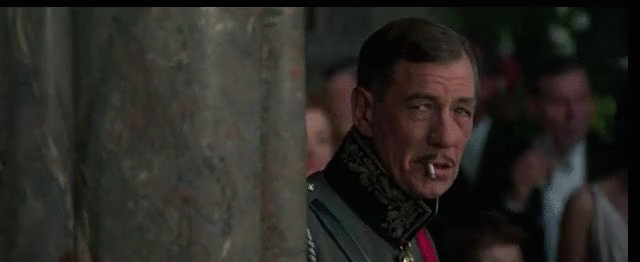
The foreshadowing of this movie is actually ridiculous, and the fact you don’t even notice it until you know who all the people are and how the story of Richard III goes, makes you wonder how the director can literally tease the entire story in front of you at once without you knowing.
As was mentioned in class, the approach to the soliloquy was indeed a bit different in this film. Particularly with the actor directly addressing the camera, much in the way an actor might directly address the audience. Some say the theatre has its own kind of atmosphere where you feel a part of what is taking place, hell some make you a part of what’s taking place. Loncraine’s decided to do exactly that and transforms many of Richard’s soliloquy’s into a direct address to the audience where he tells you how dastardly he’s going to be and how much he wants you to witness it. Besides this, there aren’t a lot of camera techniques that draw your attention away from it being a film.
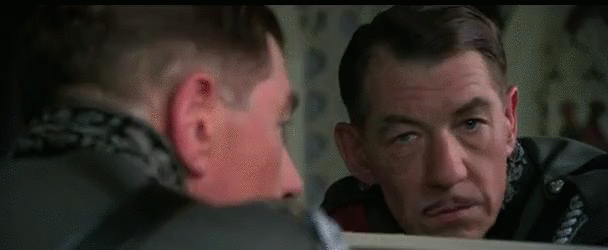
He even sometimes includes others in his solo musings, even if they are nameless extras. This just furthers the whole idea that Richard wants you to see all this, and as a directors choice, I think it worked out perfectly to display Richard as the self absorbed man he is.
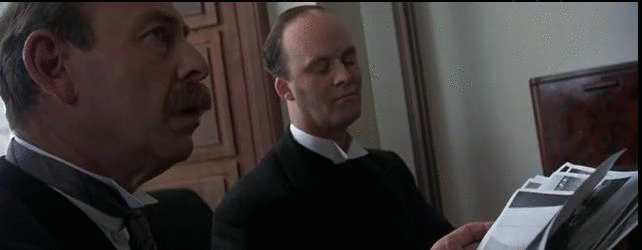
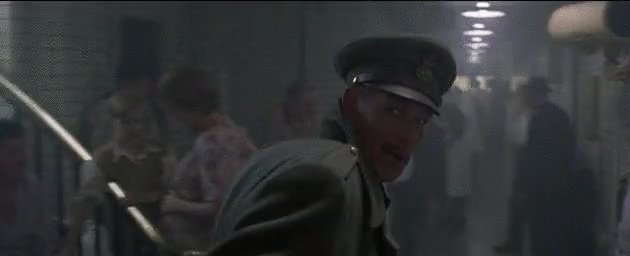
The film continues on from this point as Richard seems to succeed at every dastardly move he aimed to make. In fact, it seems that every chance he gets, Richard is just trying to show off to others. It kind of comes off as a kind of combination of arrogance and insecurity, where he seeks approval from others because of his physical disfigurement and overcompensates for it. Heck he even shows it to others, to their disgust, as a way to get their pity and sympathy. Although when he’s not trying to get sympathy, well that’s a different story.
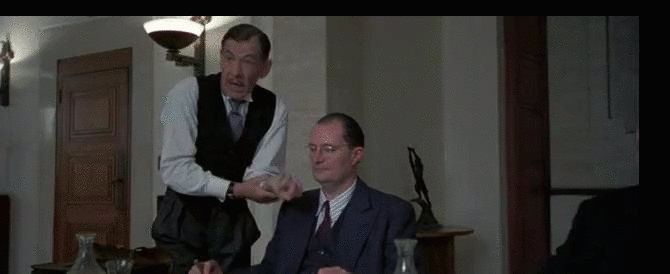
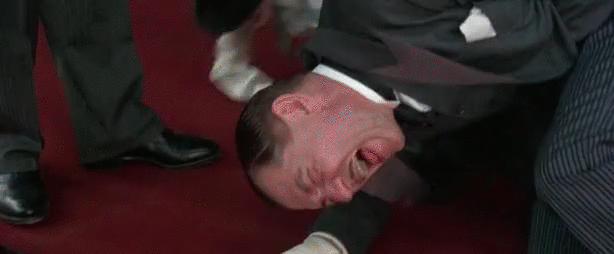
It’s actually a little weird when you’re focused on the story of an antagonist, because we’re so used to following the point of view of the protagonist. You end up feeling a bit on his side even though you know he’s the bad guy. In my opinion, Ian McKellen does an excellent job of making Richard charismatic enough to like, but so gross and off putting at the same time that you feel bad for liking the character at any moment. There’s moments where he’ll be charismatic, polite, and well mannered like the best of men. Then the next moment he’s looking over a dead man’s photos with a smile like a grandmother looking at photos of her grandchildren. Thanks for whoever decided on this scene by the way, creepy as hell.
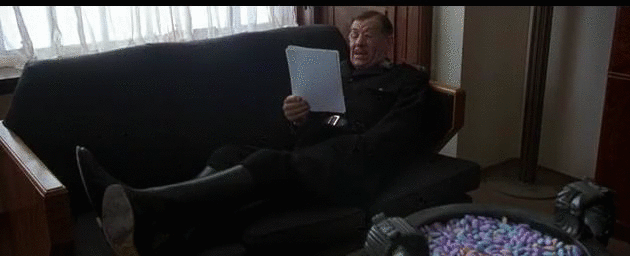
In fact, it’s kind of become a theme for Ian McKellen to come across as an actor at this point since Richard is indeed just acting. It kind of gives you an odd insight into the mind of the willing antagonist, the evil that acknowledges it is evil. While history itself might be different, the movie stays true to the idea that Richard himself knows how evil he’s being, and when you start thinking about evil and world war 2 movies, another theme starts becoming more and more obvious.
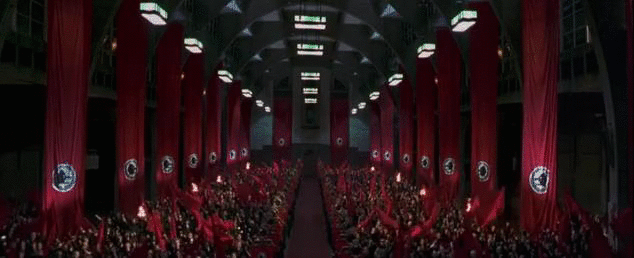
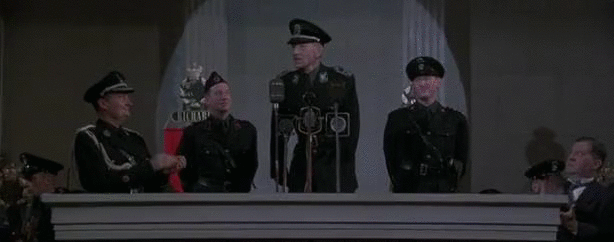
The design of the flag is a red background, a white circle, with a black design on it. Sound familiar? Well, basically at this point Richard is Hitler. I didn’t think I’d get to do it, but I’m writing a blog for an English course where I get to compare a character from Shakespeare to Hitler. Thanks Loncraine, I couldn’t have done it without you! On a more serious note though, this solidifies Richard as evil with such obvious comparisons. It’s not even just a thought in the back of your mind, it’s “Oh this movie is like a WW2 movie about Hitler rising to power except it’s a Shakespeare play.” I suppose it was fairly obvious from the start, but the more you dwell on the idea the more it makes sense from the director.
I mean think about it, Richard III was considered a villain in history, and Richard III is Shakespeare’s re-telling of the history. Loncraine basically drew the parallel that Richard III is to Victorian England’s history the same way Hitler is to 1930’s history. It’s a position that some people might find uncomfortable to think about, but it’s being made extremely apparent to the audience in this movie.
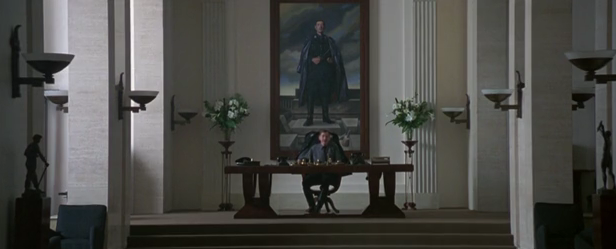
The movie ends up approaching its denouement with Richard still being completely full of himself. Everyone is in uniforms reminiscent of the Nazi soldiers (except for that one guy who ends up ‘betraying’ Richard) and Richard seems to think the hardest part is done and just doesn’t seem to see anything coming. I mean, the director was really committed to making it seem like Richard’s lost his touch at this moment, I mean in a scene just after he grossed the hell out of Elizabeth and forcibly kissed her, he thinks he’s completely won.
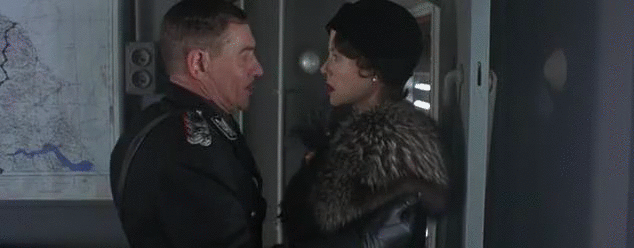
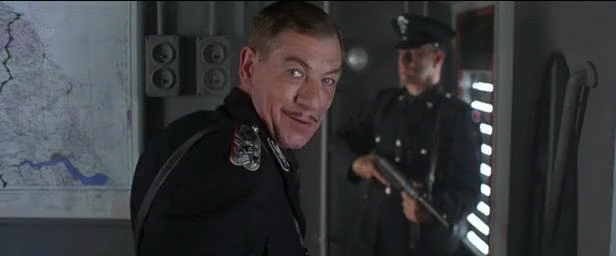
Well, in the end it successfully causes you to lose any and all sympathies you might have had for this character, which I suppose was the point huh. The kiss wasn’t explicitly stated to physically happen in the play, and I don’t know if it’s a convention in theatre, but it was sure as hell uncomfortable to watch. I mean he just finished talking about how he’s going to have children with her daughter, it’s almost like Richard thought he could do no wrong anymore. Either that or he’s just seriously sick of getting away with stuff that he no longer cares, he just wants to get caught. All the world to nothing he said.
Well, with that the movie pretty much draws to its conclusion, and the director seems committed to the idea that Richard had no regrets even in his last moments. Just one of those movies where everything is a parody to Hitler and Nazi Germany and – wait I forgot this was a Shakespeare film. I’m not sure if the director intended it, since there is indeed a standoff between just Richard and Richmond (Who happens to be the one challenging Richard’s crown), but it ends up feeling fairly Hollywood as it wraps up. I mean my one complaint would be the amount of lines Richmond lost in the film from the text, since he seems to take up the reins as protagonist. It just felt like you were on a boat with Richard, he was the captain, and he struck a rock and now you’re sinking with him and there’s no lifeboats and you have this cocky Richmond fellow just staring at you from his ship with his smug grin.
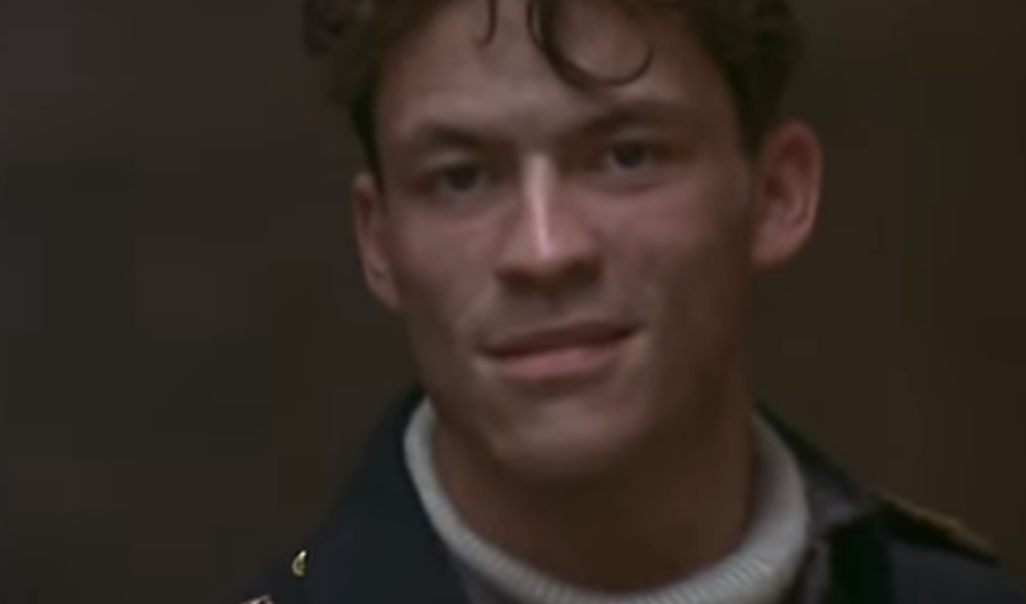
Overall, I felt like what started out as a typical WW2 film with its intro, progressed into Shakespeare, and then back again. It doesn’t feel like the entire breadth of the story was included but, I’m satisfied with what was shown. Even with my one complaint, I’d say they had settled in very rigidly to portray Richard as the main character and not let that change. I mean heck, Richard didn’t even change at the end, he still seemed to be enjoying himself as he pitched down into the flames.
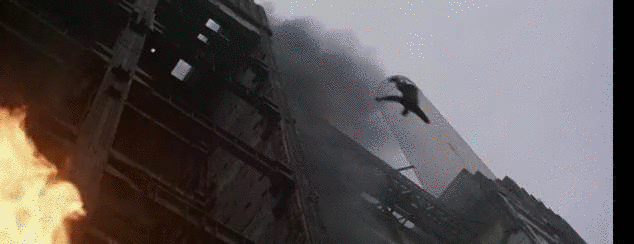
Works Cited
Richard III, Dir. Richard Loncraine, 1995. Film. 8 June 2016.
All images borrowed directly from the film cited.
Shakespeare, William. Richard III. The Complete Works of William Shakespeare, Website. 8 June 2016 ( http://shakespeare.mit.edu/richardiii/full.html/ )
By: Chelsea Santucci
Leave a Reply
You must be logged in to post a comment.